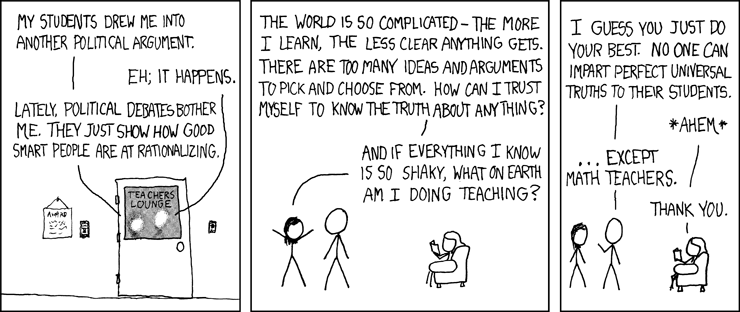green.pixel
Veteran
That's an interesting viewpoint, how long have you hated your father? :|And psychology really isn't applied biology. At best, it wishes it was.
http://www.britannica.com/EBchecked/topic/369194/mathematicsMath is not a science
That's an interesting viewpoint, how long have you hated your father? :|
Maths was certainly part of the faculty of science when I went through university. I suppose one could have done maths as part of a Bachelor of Arts, but given that over every toilet roll holder in the department was gratified "BA. Please take one", I doubt it was popular.:smile:Math is not a science
There is also the more difficult category of words ending in -ics which may or may not govern a plural verb. Such words used strictly for the name of a subject are regarded as singular: Economics, Ethics. Compare heroics, hysterics.

Well, the word "math" is slang word for mathematics, so shouldn't "maths" be incorrect?
